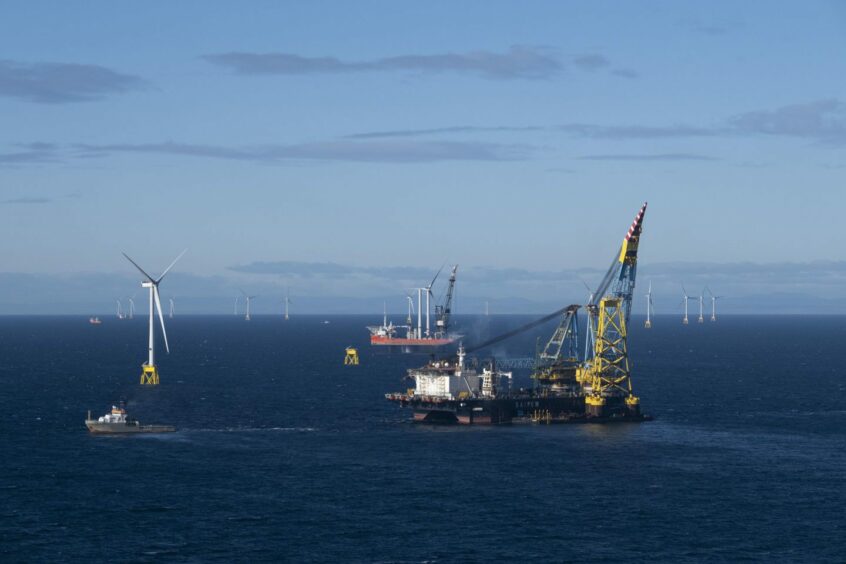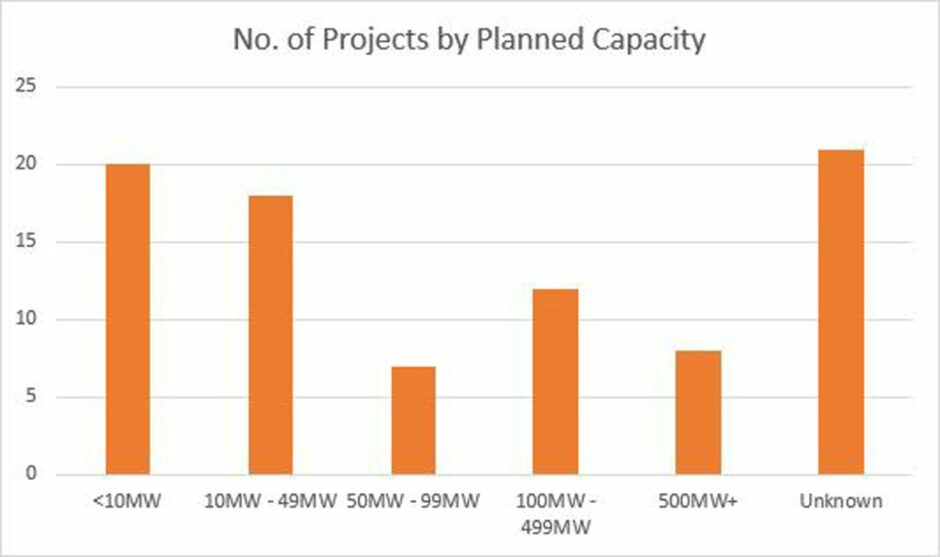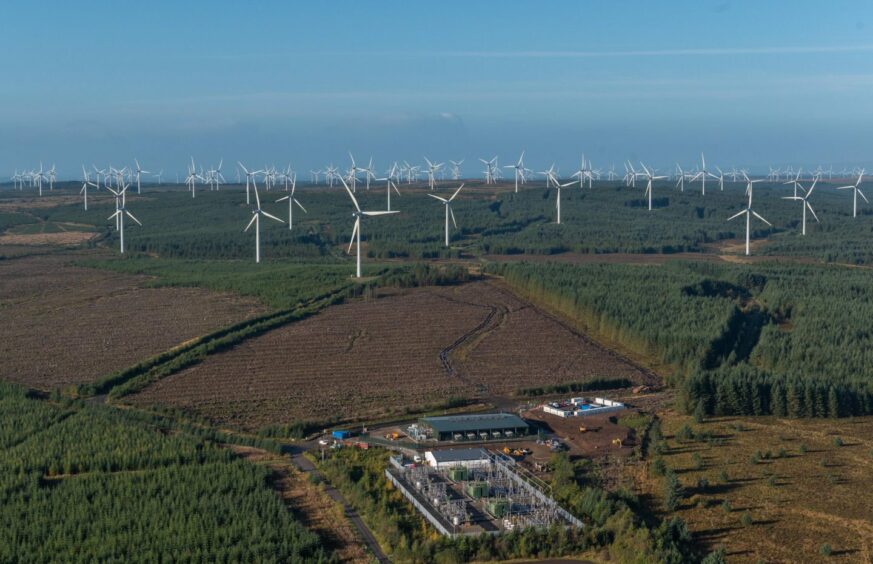
With an impressive and diverse range of projects already in the works, hydrogen isn’t just a hypothetical opportunity for the future in Scotland. Companies can and should act now to achieve their growth ambitions in this emerging market.
That’s the message from Scottish Enterprise, which has launched a new hydrogen expert support service for businesses looking to explore potential opportunities.
The emerging hydrogen nation
The Scottish government is convinced that hydrogen will play an important part in our energy system going forward – so much so, it’s set out an ambitious hydrogen action plan.
And there’s already a growing pipeline of hydrogen projects.
Jamie Robinson, hydrogen specialist at Scottish Enterprise, is part of a team that has been looking into this. He says: “This is not just a policy statement, it’s not just an ambition on paper – it’s something that is starting to become real.”
Scottish Enterprise has dedicated time and resources to a deep dive into the current state of the hydrogen industry in the country, analysing live projects across Scotland and identifying potential opportunities for the supply chain. This analysis has played a critical role in the development of the recently launched hydrogen expert support service – which provides support and guidance to companies interested in getting involved in this emerging industry.
But, before we take a close look at what that new support service involves, let’s start with what you need to know about hydrogen in Scotland at the moment.
Data about hydrogen projects already underway in Scotland
Scottish Enterprise keeps a database of hydrogen production projects which reveals that as of April 2023 the total number of H2 production projects in various stages of planning in Scotland, that Scottish Enterprise is aware of, is 86. Some of these may not come to fruition, and this includes a broad range of levels of commitment to hydrogen production, but in general this represents a very healthy pipeline for a small nation.
Of those 86 projects, Scottish Enterprise knows the planned scale of 65, and they come to a total of 11.5GW. The split of projects by planned capacity is:

Of the total 86, Scottish Enterprise has some knowledge of the planned timescale for 56. The timescales are split as follows:

Examples of current hydrogen projects
So what are the stories, companies and projects behind all of this data? Here is a closer look at two ongoing projects.
Ongoing project: Aberdeen Hydrogen Hub
One opportunity is the Aberdeen Hydrogen Hub.
BP Aberdeen Hydrogen Energy Limited – a joint venture between BP and Aberdeen City Council – plans to design, build and operate the scalable green hydrogen production, storage and distribution facility.
Powered by a purpose-built solar farm, the planned site will incorporate green hydrogen production and refuelling facilities for the city’s growing public and private fleet of hydrogen vehicles.
Dr Oliver Taylor, chief executive of CP Aberdeen Hydrogen Energy Limited, said: “BP’s shared vision with Aberdeen City Council is to establish the city as a centre of excellence for hydrogen technologies. That’s why we formed a joint venture to build the Aberdeen Hydrogen Hub.
“Continuing BP’s track record of building global supply chain capability, we’re committed to maximising opportunities for local suppliers to create an ecosystem in Aberdeen and see opportunity for this to be used as a template across Scotland.”
Ongoing project: Whitelee
Plans are also afoot at ScottishPower’s Whitelee wind firm, located near Eaglesham just outside of Glasgow.
A ScottishPower spokesperson said: “Whitelee is quickly evolving from the UK’s largest onshore windfarm to one of the country’s first large-scale hybrid energy parks, featuring wind power, solar energy, battery storage and green hydrogen production.
“ScottishPower has worked hard for many years to build effective relationships with local suppliers and communities in the development and ongoing operation of Whitelee. This will continue with the development and construction of the green hydrogen facility, that will be one of the first developed at a wind farm in the UK.
“Building and supporting a network of local companies in the delivery of a world-leading green technology is integral to ScottishPower’s green hydrogen ambitions.”
How you can get involved: the role of Scotland’s supply chain
For Scottish Enterprise, the emerging hydrogen industry presents a range of opportunities for businesses currently in supply chains for established sectors to diversify.
Mr Robinson says: “The key driver for us is making sure that when we realise these ambitions of becoming a hydrogen economy and see all these production and end use projects developed here, we also see a lot of Scottish content.
“We want Scottish supply chain companies to be part of those projects to maximise the economic benefits for Scotland, rather than seeing all the benefits flow elsewhere.”
For those already in the supply chain, hydrogen could be a new source of work and business.
Mr Robinson continues: “We have established sectors and we’ve built a world-leading reputation in spaces like oil
and gas, and subsea & offshore engineering – all of which is very relevant to the hydrogen opportunity.
“The basics of it are there – we know how to handle gases, and how to handle things offshore. That’s a lot of transferable skills. We also have companies offering specific goods and services that are readily applicable.”
A clear example of this is detailed in the Scottish Government’s study into electrolyser manufacturing, which showed that Scottish companies already have capabilities related to electrolyser components. It found that many of the common components needed for electrolysers, such as process equipment, have pre-existing supply chains in Scotland.
Take advantage of opportunities: Scottish Enterprise’s hydrogen expert support service
There are opportunities right now, but we need to act so they don’t pass us by.
Mr Robinson explains: “We can’t afford to sit on our hands. Supply chain companies need to gear up to this and get ready for it. There are lots of skills there that are applicable here, but they still need to understand how to get into this market and these projects. If they wait too long, we’ll find ourselves falling behind. There’ll be companies from other countries that can come in and take over.”
It all comes down to making connections and getting started – which is what Scottish Enterprise is focusing on with the launch of a new hydrogen expert support service.
Mr Robinson says: “It’s for companies who are hydrogen curious, who think they may have something to offer in this space but aren’t quite sure how to start or how to get involved in the market.
Essentially, it gives companies two days of free consultancy from an expert. The consultant will use this time to understand what the company does, offering hydrogen market insight and providing a tailored report with advice specific to that company for getting into the hydrogen space. Companies can then add on another four days of consultancy at 50% cost, if they wish to delve deeper.
Find out more about the potential for hydrogen in Scotland and apply online for Scottish Enterprise’s hydrogen expert support service.
Recommended for you

 © Supplied by Scottish Enterprise
© Supplied by Scottish Enterprise